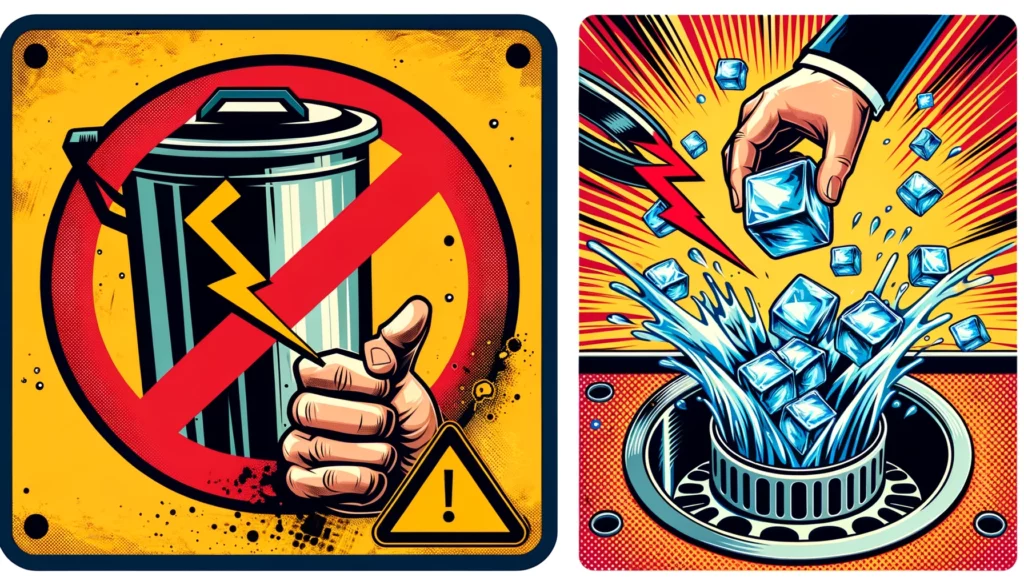Garbage disposals need maintenance and care! What you don’t put down it can be just as important as how you use it. We’ll explore seven critical items and substances that should never find their way into your disposal. Knowing what you should put down the garbage disposal can prevent costly repairs, extend the life of your disposal, and ensure it runs efficiently. From avoiding greasy substances that can clog your system to steering clear of hard items that can damage the mechanics, this advice is crucial for any homeowner looking to keep their kitchen plumbing in top shape.

- Don’t Pour Grease or Oil Down the Disposal: Grease, fats, and oils can solidify within the plumbing and create clogs. Instead, dispose of grease in the trash.
- Don’t Grind Fibrous Foods: Items like celery stalks, onion skins, corn husks, and artichokes are fibrous and can tangle around the disposal’s blades. This can lead to motor burnout and impaired functionality.
- Don’t Use Hot Water When Grinding: While it might seem helpful, using hot water can cause grease to melt and coat the disposal’s interior, leading to clogs. Use cold water instead, which helps keep grease solid so it can be chopped up before reaching the trap.
- Don’t Grind Extremely Hard Substances: Avoid putting materials like bones, fruit pits, or seafood shells into the disposal, as they can blunt the blades, jam the disposal, or even damage the motor.
- Don’t Overload the Disposal: Feed waste gradually into the disposal instead of stuffing it with large amounts at once, which can overload the system and cause jams.
- Don’t Put Expandable Foods in the Disposal: Foods like pasta and rice expand when wet and can accumulate in traps and pipes, leading to clogs.
- Don’t Forget Routine Maintenance: Regularly clean your disposal by grinding ice cubes, which help clean the blades, and by flushing it with water and a bit of dish soap after use to keep it running smoothly.

